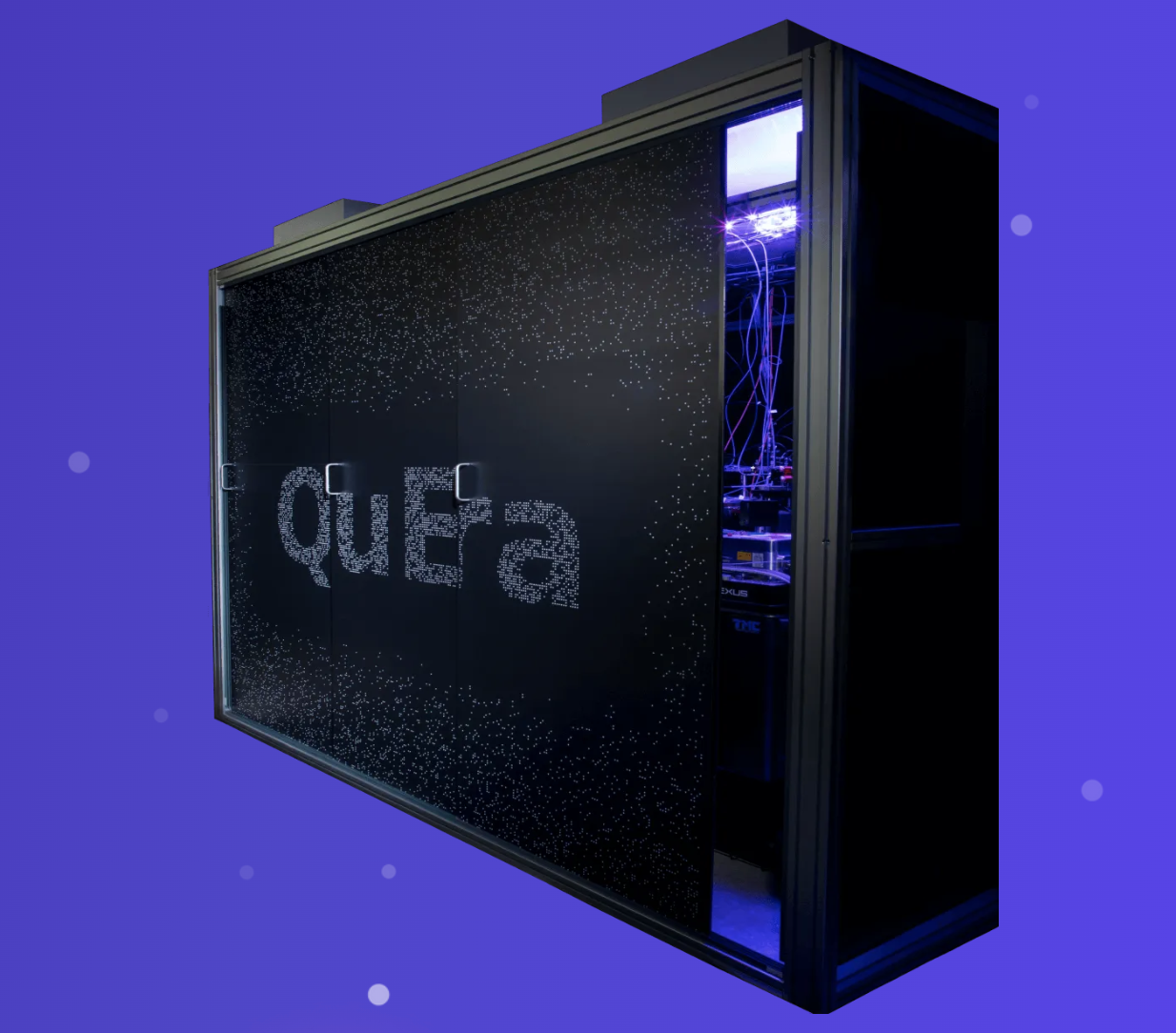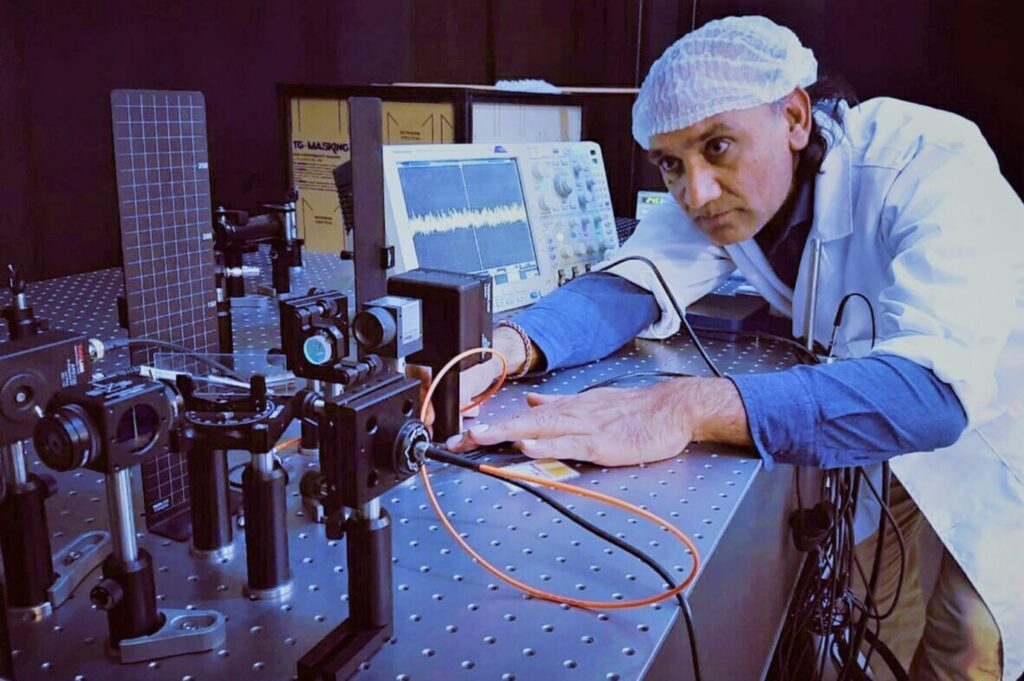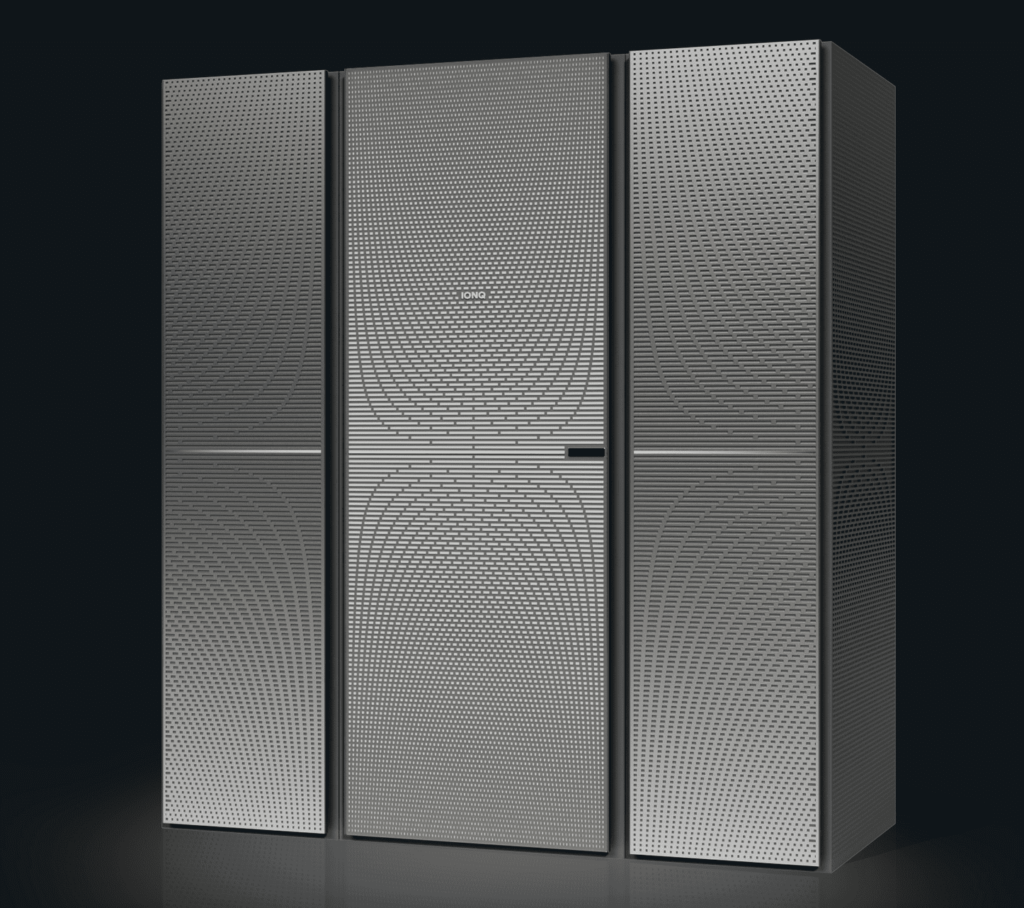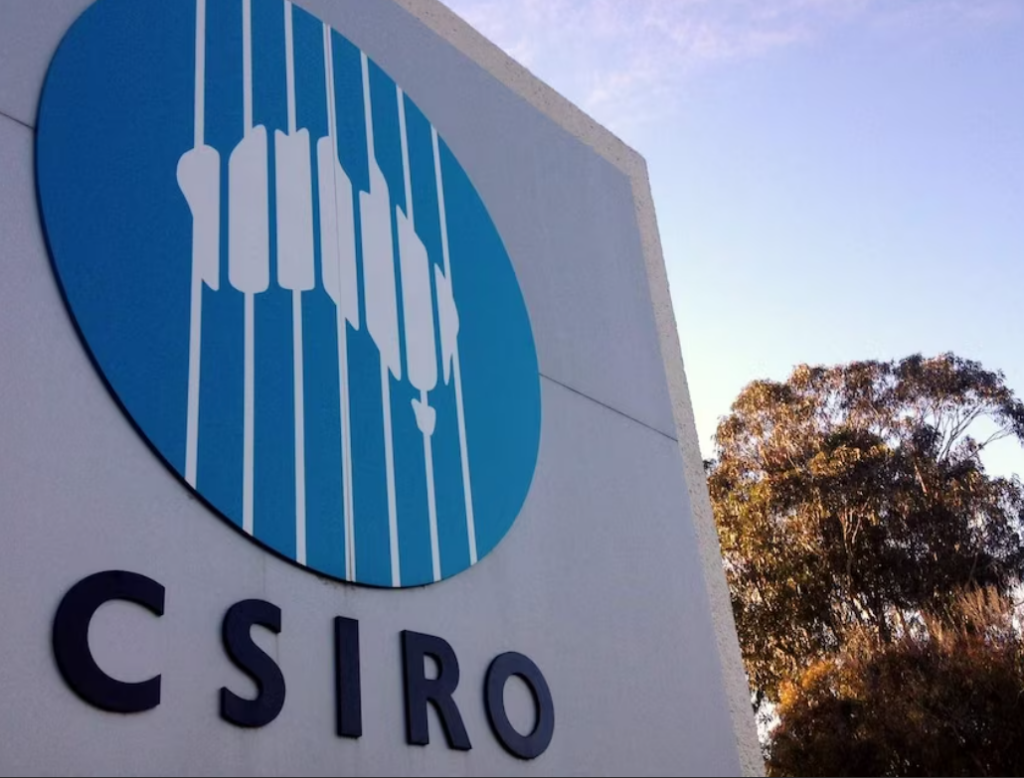Insider Brief
- QuEra and UK-based collaborators announced that they will build one of the UK’s quantum testbeds.
- The company expects its testbed for the National Quantum Computing Centre — NQCC — to be operational in early 2025.
- QuEra’s testbed will have the ability to coherently shuttle groups of atoms, which sets the stage for experimentation with logical qubits.
- Image: QuEra
PRESS RELEASE — QuEra Computing, the leader in neutral-atom quantum computers, has announced that the UK’s National Quantum Computing Centre (NQCC) at Harwell, Oxfordshire, will soon be home to one of the world’s most advanced quantum computing testbeds. Funded through the NQCC, and supported by the Small Business Research Initiative (SBRI) framework, one of the testbeds will be built by QuEra in collaboration with UK-based collaborators.
The initial testbed in the UK will build upon the recently announced scientific breakthrough using ‘logical qubits’ to detect and correct errors inherent to quantum calculations. A key part of this process is qubit shuttling, which enables qubits to move while preserving their quantum state and allows for the entanglement of nearby qubits. Until now, this was a major barrier to achieving scalable, practical quantum computers and ultimately achieving quantum advantage.
As a result, the UK will be home to the first qubit shuttling and error correction testbed in the world. QuEra will begin work on its testbed for the NQCC soon and expects it to be operational in early 2025.
“The UK will be the first to experiment with technology set to pave the way for a new era of quantum computing,” said Alex Keesling, CEO, QuEra Computing, “To be truly useful, quantum computers need to be built at scale, with modest operating requirements and, crucially, they need to be fault-tolerant. We have proven the ability of logical qubits to solve the issue of high error rates, and neutral-atom processors are the leading candidate to surpass the 100 logical qubit scale within the next few years. The UKRI and NQCC had the foresight to recognise this approach and its potential. As a result, the UK will gain a significant first-mover advantage and the chance to boost and prepare its quantum industries for the future.”

Congratulating the testbed competition winners, Dr Michael Cuthbert, NQCC’s Director commented: “NQCC seeks to accelerate the development of the UK’s quantum computing capabilities and infrastructure. There is a growing realisation across the industry that quantum developers need access to the hardware to engineer scalable solutions for a full-stack quantum computer. Once built, these system-level prototypes will help the NQCC and its collaborators to understand the unique characteristics of different hardware approaches, establish appropriate metrics for each qubit architecture, and explore the types of applications that benefit most from each technological approach. That will feed directly into the NQCC’s ongoing engagement with organisations across academia, industry, and government to develop use cases for early-stage quantum computers, and to identify the innovations that will be needed to accelerate the development and adoption of this transformative technology.”
Key innovations to boost UK quantum industry
QuEra will introduce several key innovations into the testbed at NQCC, deploying a dramatically more advanced dynamic processing architecture than existing quantum systems. This zoned architecture is the quantum equivalent of a classical Von-Neumann architecture. This initiative will benefit UK-based quantum researchers and software developers in two significant ways. Firstly, it will provide them with the opportunity to explore and optimize this unique architecture. Secondly, it will enable vendors to refine hardware that is essential to the supply chain for neutral atom processors. These processors are currently viewed as a leading solution for developing scalable, fault-tolerant computers.
This deployment will accelerate the cross-pollination between companies in the UK/EU quantum ecosystem, help develop the UK quantum workforce, set new performance standards, and make key advances towards fulfilling the UK national quantum computing strategy.
The testbed will have the ability to coherently shuttle groups of atoms, which sets the stage for experimentation with logical qubits. Logical qubits are an ensemble of entangled individual physical qubits, allowing errors in individual physical qubits to be detected and corrected. As a result, researchers and industry partners can experiment with cutting-edge algorithms that use these advanced capabilities.
A critical enabler of this system is the ability to dynamically reconfigure atoms in the processor using movable optical tweezers, introducing all-to-all gate connectivity, programmability at scale with just a few local optical controls, and making possible a wide variety of optimised zoned-architectures. The testbed will also introduce mid-circuit measurement to allow for conditional operations and executions based on intermediate results, setting the stage for future improvements such as the ability to correct errors or make dynamic adjustments to ongoing computations.
For more market insights, check out our latest quantum computing news here.




















